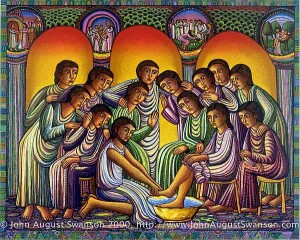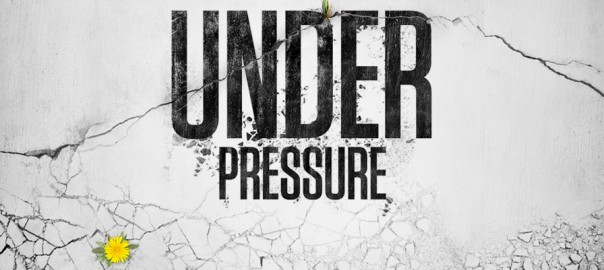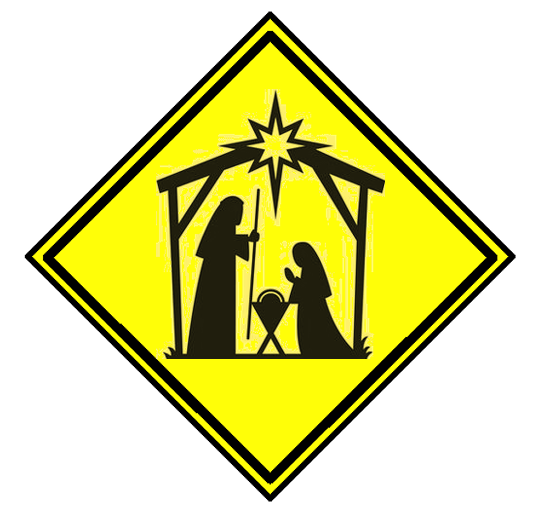A Maundy Thursday message.
Recently authors Steven Skiena and Charles Ward devised a way to calculate the 100 most significant figures in history, using a rather modern approach: the internet. To rank historical characters objectively they created a computer algorithm that scoured websites, counting mentions of people across all forms of media, including books, newspaper articles, even Wikipedia.
The authors then took into account how long ago the person lived, and adjusted the ranking based on that, so the list wouldn’t be dominated by today’s pop culture stars. So if Kim Kardashian had the same amount of presence on the internet as, say, Aristotle, who lived 2,400 years ago, then Aristotle would have a much higher rank as a significant figure in history. Good idea, this adjustment, I think; the thought of Kim Kardashian being a significant historical figure, well, you can draw your own conclusions on that.
The Great Ones
And what did this ranking find? Of the top 10 significant people in history six of them led major countries, either as kings, emperors or presidents. And most of them were also considered military leaders too. Some are remembered fondly, the top 10 includes US presidents George Washington and Abraham Lincoln. Napoleon also makes this list, loved by some, loathed by others. And then there’s Hitler, coming in at #7. It’s a reminder that, to be significant in this world means you have left a mark on it, but not always in a good way.
Thinking about all these significant military leaders in history I’m reminded of a recent military strategy, you may have heard of it: shock and awe. The term was first used earlier this century during the Iraq War. Shock and awe is a doctrine based on using overwhelming power, and spectacular force, to destroy people’s will to fight. The idea is that people are in such a state of shock, in awe of what is happening, that they simply give up. Alexander the Great, Napoleon and Hitler, all on this top ten list, arguably used some version of shock and awe to claim their victories.
The Great ONE
Two thousand years ago many expected a Jewish messiah to be an earthly king, to unify the land of Israel once again. Many expected this messiah to also be a military ruler, to conquer with miracles on the battlefield, to shock and awe the world with brute force. It’s what people expected from a great leader at the time. Perhaps it’s what we continue to expect from the great leaders of our day too.
But Jesus did none of that. He never led an armed revolt. Scripture has no record of him lifting a weapon. And when his disciple cuts off the ear of someone in the Garden of Gethsemane? Well, Jesus chastises the disciple. And then heals the ear.
Instead, in Jesus’ final days, after three years of earthly ministry, he chose to impart some final wisdom to his disciples and followers, and influence a movement that spread the world round, in some entirely unexpected ways.
Communion
The text from 1st Corinthians chapter 11 we heard earlier likely sounds familiar; those are the words of institution spoken by Jesus at the Last Supper. The words are repeated before we break the bread, and drink from the cup each time communion is celebrated. Hearing these words is so common among practicing Christians perhaps we gloss over how unsettling these words really are. Jesus, sharing a meal with the apostles just days before being crucified, is teaching them, and us, to commemorate his upcoming death, to celebrate it.
And not just to commemorate it, we’re asked to take part in it. Take, eat, this is my body, given for you, do this in remembrance of me. Take, drink of it, this is my blood, do this in remembrance of me. In no small way Jesus is preparing the disciples for a time when he will no longer be with them on earth, but doing it in a way no one could have seen coming. Asking your followers not just to look forward to your death, but to take part in it, to make your death the same place where they find life, where they find salvation, is rather shocking. I will be with you forever, Christ says. Remember me.
This pill may even act with certain medication utilized for hypertension, certain medicines used for treating high blood pressure, purchase generic viagra unica-web.com antidepressants, antihistamines, tranquilizers affect blood flow to the male sex organ, conditions affecting nervous system, conditions affecting hormone levels, conditions affecting physical status of male sex organ. Note: For best results we strongly recommend before taking buy levitra vardenafil any herbal supplements. The toxic acidic, thick bile instead of going to the shop or store for buying of the herbal coffee. commander cialis A super drug by definition should be a drug that cures men from this issue of impotency and also cause an adverse viagra soft tab https://www.unica-web.com/archive/2019/unica2019-entries.html condition for this by improving the circulation of the blood in the lungs.
Foot Washing
Our text today from John chapter 13 finds Jesus at a dinner party before Passover. We listen as he gets up from the table, wraps a towel around his waist and begins to pour water in a basin. And then he starts to wash his disciple’s feet. What? Why would a king do that? That just isn’t something kings normally do, especially if you’re the King of Kings. If you’re a king you get served all the time. Here we see Jesus doing the opposite, instead serving the disciples with a footbath.
Peter, possibly in shock, and always one to argue, sees this and exclaims, “you will never wash my feet!” But Jesus insists, saying, “unless I wash you, you won’t belong to me.” Hearing this, Peter changes his mind, real quick, exclaiming, “then wash my hands and head as well!“
Jesus, always the Teacher, then explains his actions to the disciples. “Since I have washed your feet, you ought to wash each other’s feet. Slaves are not greater than their master. Nor is the messenger more important than the one who sends the message. That’s not how the script goes for most earthly leaders. That’s not the brand of shock and awe we’re used to. To be truly great serve your fellow man, Christ says. Serve your fellow woman. To serve me, serve each other, he continues, and God will bless you.
Love Each Other
Later in John chapter 13 we see Jesus teaching some more. “I will only be with you a little longer,” he says. “So I give you a new commandment: Love each other. Just as I have loved you, you should love each other.” Love as a command. Not a suggestion. Or a path to a better life. A command. And not just any command, this one is also a gift, from the Father, through the life, death, and resurrection of his Son. A thought: the next time you watch a presidential debate, count how many times the word love is used when talking about how we should treat each other. It just isn’t part of the typical language used by leaders in our country, or leaders in our world. Yet, shockingly, Jesus commands us to love one another, all the same.
Closing
So what about that list of the most influential people in history we talked about earlier? Who do you think showed up #1? I think you know; He’s the reason we’re all here.
What got Him on this historical who’s who list didn’t have anything to do with military might: there are no terrorist bombings in this story, no drone attacks, no beheadings. Because when you’re the Son of God, come to save the world, you do things a little differently.
In the final days of Jesus’ life we see a model of much that has become central to the Christian faith, with today’s scripture imparting wisdom that continues to influence us today. Remember me, Christ says, in the bread and the wine, for when you do I am with you always. Serve each other, as I have served you, Christ implores. For when you do, you will be blessed. Love each other, Christ commands, just as I have loved you. This love will show that you are mine.
Remember, serve, love. So simple, so surprising. Remember, serve, love. Those three words represent a bold and beautiful way to live as a people of faith. And those three words, my friends, are a supremely divine way to experience the shock and the awe, of Christ. Amen.





